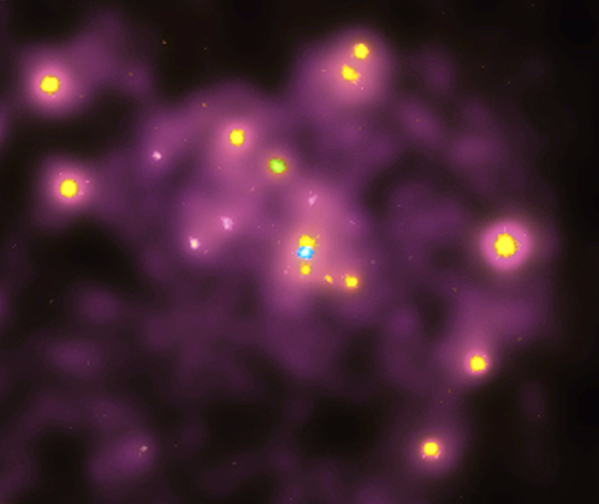
 Credit: NASA/CXC/SAO
Credit: NASA/CXC/SAO
The Black Heart of M31
The Andromeda galaxy, M 31, is the nearest spiral galaxy neighbor of the
Milky Way. By studying M31 it's like looking at the Milky Way from the
outside, and structures and objects hidden in the Milky Way by intervening
clouds of gas, dust and stars can be seen clearly in Andromeda. The image
above shows an X-ray image by the Chandra X-ray Observatory's ACIS
camera of the center of Andromeda, which houses a supermassive black hole
(with a mass equal to that of 30 million suns), seen as the blue dot at the
center of the image. A
similar object is thought to live at the center of
the Milky Way, but it's harder to see as clearly. The black hole at the
center of Andromeda is especially cool, with a temperature of "only" 1
million degrees. Astronomers think that the black hole glows in X-rays as
it swallows nearby clouds of gas and stars. At a distance of 2.5 million
light years from us, the earth is safely beyond the pull of the M31 black
hole. The other bright sources in the image are probably solar mass
neutron stars orbiting relatively normal stars.
Last Week *
HEA Dictionary * Archive
* Search HEAPOW
* Education
Each week the HEASARC
brings you new, exciting and beautiful images from X-ray and Gamma ray
astronomy. Check back each week and be sure to check out the HEAPOW archive!
Page Author: Dr. Michael F.
Corcoran
Last modified June 2, 2000


